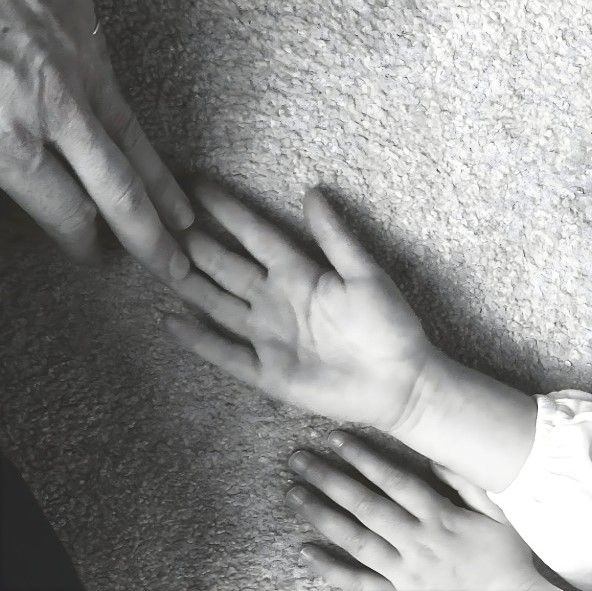
MENU


“Everyone knows what attention is” (James, 1890)
“No one knows what attention is” (Hommel et al., 2019)
These two statements, dated almost 130 years apart, are fundamentally contradictory on the surface. William James – a leading thinker of the 19th century and one of the most prominent figures in the establishment of modern-day psychology – asserts that attention is a phenomenon understood by every human being. Hommel and colleagues, scientists writing over a century later, claim that conversely, no human being understands what attention is. While these two sentences may seem irreconcilable, they can, and are, very much both true. To understand how they can co-exist, we need to dig into what they really mean.
William James, on the one hand, is referring to a folk or intuitive understanding of attention. By “everyone knows what attention is,” James is saying that every human being has some grasp of a shared definition of attention. Think of a child saying “give me attention!” or a friend saying “I can tell you’re not paying any attention!” a colleague saying “I am just so inattentive today,” or an employee promising “I will give this task all of my attention this week.” All of them implicitly understand attention as a crucial resource to be directed at particular targets or stimuli, as an asset that we can offer someone or something, and as a process we can control but that can also slip away from us. In that sense, we do all (kind of) know what attention is. This is reflected in the fact that a Google search for “I can’t pay attention” returns a whopping 1.5 billion hits. For so many of us to reflect on and write about our difficulties with attention is a testimony to the fact that we all have some common idea of what attention is, and the role it plays in our lives.
Now, at the same time, by “no one knows what attention is” Hommel and colleagues are hinting to the fact that our scientific account of what attention is, how it operates, and its related mechanisms and brain functions, are all constantly evolving and oftentimes contradictory. There are indeed numerous theories of attention that are simultaneously adopted by various research groups today; these theories are not necessarily mutually exclusive, but they do highlight very different aspects or sides of attention. This means that two scientific publications that have the word “attention” in their title, can end up looking at different phenomena, and explaining them using divergent models. Attention therefore, interestingly, is a word that two lay individuals can easily agree on, but two scientists can argue about forever.
So, how do we at Lifeverse, navigate these two realities, that everyone *and* no one knows what attention is? First and foremost, we prioritize cutting-edge scientific advancements on attention, and allow them to lead the way for our research and development. This can be a complicated task, of course, given the variety of definitions and accounts of attention in the scientific literature. But it remains an unwavering commitment of ours, to read and collaborate with leading experts on attention, and not to shy away from the complexity of the concept.
At the same time, we are guided by practical, real-life difficulties that people have with their attention, and are dedicated to solving those. We therefore constantly and consistently discuss *what attention is to us*, and this helps us filter through and produce scientific knowledge that has a direct impact on people’s lives. This is an ever-evolving phenomenon, that we will continue to share with you, and here is, for the moment, what we think are the most important aspects of attention:
[We think of attention as a *process*, that people can develop in different ways. It involves a *coordination between the body* (our senses that capture external stimuli) *and the* *mind* (our cognition that handles internal thoughts), to be *aware of* and *reflect on our lives*. This process allows us to *prioritize* between different behaviors, and to *inhibit* the parts of our surrounding (real or mental) that do not serve us at any point in time. It is a function that we can (more or less) control, but that also may momentarily slip away from us. It is driven by ability, but perhaps more importantly by *motivation, and practice*. By understanding our own process, how our body and mind work together, and by being aware of and reflecting on our own cognitive patterns, we can shape our attention; and attention, in turn, shapes our reality.]
We at Lifeverse know quite a lot about attention, but we are also certain we will continue to know more and more. One thing that will remain unchanged throughout this journey of continuous discovery, we believe, is our understanding of unraveling its power.
Every week, we will post a short blog relating to the concept of attention, the latest scientific developments around it, or our updates about our own progress here at Lifeverse!
 Sign up to the blog
Sign up to the blog
If you have an interesting idea that relates to attention, or if you do research on attentional processes and would like your work to be featured on our blog, please reach out - we are always happy to collaborate with brilliant minds from across fields and disciplines!
 Pitch us an idea!
Pitch us an idea!



Distractions were crucial for the survival of our species, helping us react quickly to potential dangers. However, in today’s world, constant notifications hinder our ability to maintain prolonged concentration. In this article our expert emphasizes Cal Newport’s concept of a “deep life” about the importance of focusing on tasks with minimal distractions, whether it’s work or personal activities.
Our working memory, powered by the prefrontal cortex, is essential for planning, organizing, and reasoning. Despite this capability, we often fall short of our goals due to interruptions like notifications. The author shares a personal experiment of limiting WhatsApp usage to reduce stress and improve presence with their daughters, and highlights the importance of managing distractions to enhance productivity and presence.



On this new post our expert explores the concept of attention from a multidisciplinary perspective, pondering its definition, measurement, and significance. It suggests that attention is akin to love, both for oneself and for others. Attention, when fully engaged, enhances experiences and facilitates deeper understanding.
The article draws parallels between attention and acts of caring, such as listening to loved ones. It argues that true attention is essential for experiencing and expressing love. Ultimately, it proposes that exploring attention is synonymous with exploring the capacity for human love, both self-love and love for others.



This article explores the unique types of attention parents develop, particularly those dedicating substantial time to their children. Identifying two distinct attention modes—focused and rote—the author reflects on the challenges and engagement levels associated with each. Drawing from personal experiences, the author discusses the pursuit of achieving a state of “flow” with one’s children, akin to the immersive state described by psychologist Mihaly Csikszentmihalyi.
The narrative also touches on concerns about diminishing self-regulation in a screen-dominated world, referencing a study’s findings on the impact of screens on children’s self-control.




In this new article our expert reflects on the natural parental fear of their child falling ill and shares a shift in perspective towards sickness. Instead of solely worrying, our expert sees it as an opportunity to listen to their body, be present in the moment, and understand the concept of care.




We shared a personal experience with a five-year-old children, exploring the art of observation and learning through a simple carrot. Embracing Feynman’s approach and impactful lessons from “What Do You Care What Other People Think?”, we aimed to make learning enjoyable and engaging. We highlighted the significance of understanding beyond names—embracing the curiosity to observe and explore. Join us on this incredible journey of exploring the wonders of how the brain learn!




How can caregivers master the art of observing children? What can we learn by simply following a child’s natural instincts and development? And how does that challenge traditional approaches to education?
This blog post offers some thoughts and reflections from parents, a Montessori guide, and a paediatric neurologist on these questions!


Distractions were crucial for the survival of our species, helping us react quickly to potential dangers. However, in today’s world, constant notifications hinder our ability to maintain prolonged concentration. In this article our expert emphasizes Cal Newport’s concept of a “deep life” about the importance of focusing on tasks with minimal distractions, whether it’s work or personal activities.
Our working memory, powered by the prefrontal cortex, is essential for planning, organizing, and reasoning. Despite this capability, we often fall short of our goals due to interruptions like notifications. The author shares a personal experiment of limiting WhatsApp usage to reduce stress and improve presence with their daughters, and highlights the importance of managing distractions to enhance productivity and presence.
Label
17-05-24

On this new post our expert explores the concept of attention from a multidisciplinary perspective, pondering its definition, measurement, and significance. It suggests that attention is akin to love, both for oneself and for others. Attention, when fully engaged, enhances experiences and facilitates deeper understanding.
The article draws parallels between attention and acts of caring, such as listening to loved ones. It argues that true attention is essential for experiencing and expressing love. Ultimately, it proposes that exploring attention is synonymous with exploring the capacity for human love, both self-love and love for others.
Label
09-04-24

This article explores the unique types of attention parents develop, particularly those dedicating substantial time to their children. Identifying two distinct attention modes—focused and rote—the author reflects on the challenges and engagement levels associated with each. Drawing from personal experiences, the author discusses the pursuit of achieving a state of “flow” with one’s children, akin to the immersive state described by psychologist Mihaly Csikszentmihalyi.
The narrative also touches on concerns about diminishing self-regulation in a screen-dominated world, referencing a study’s findings on the impact of screens on children’s self-control.
Science

06-03-24

In this new article our expert reflects on the natural parental fear of their child falling ill and shares a shift in perspective towards sickness. Instead of solely worrying, our expert sees it as an opportunity to listen to their body, be present in the moment, and understand the concept of care.
Science

29-02-24

We shared a personal experience with a five-year-old children, exploring the art of observation and learning through a simple carrot. Embracing Feynman’s approach and impactful lessons from “What Do You Care What Other People Think?”, we aimed to make learning enjoyable and engaging. We highlighted the significance of understanding beyond names—embracing the curiosity to observe and explore. Join us on this incredible journey of exploring the wonders of how the brain learn!
Science

06-02-24

How can caregivers master the art of observing children? What can we learn by simply following a child’s natural instincts and development? And how does that challenge traditional approaches to education?
This blog post offers some thoughts and reflections from parents, a Montessori guide, and a paediatric neurologist on these questions!
Science

13-12-23
If you have an interesting idea that relates to attention, or if you do research on attentional processes and would like your work to be featured on our blog, please reach out - we are always happy to collaborate with brilliant minds from across fields and disciplines!
 Pitch us a blog idea!
Pitch us a blog idea!
Every week, we will post a short blog relating to the concept of attention, the latest scientific developments around it, or our updates about our own progress here at Lifeverse!
 Sign up to the blog
Sign up to the blog